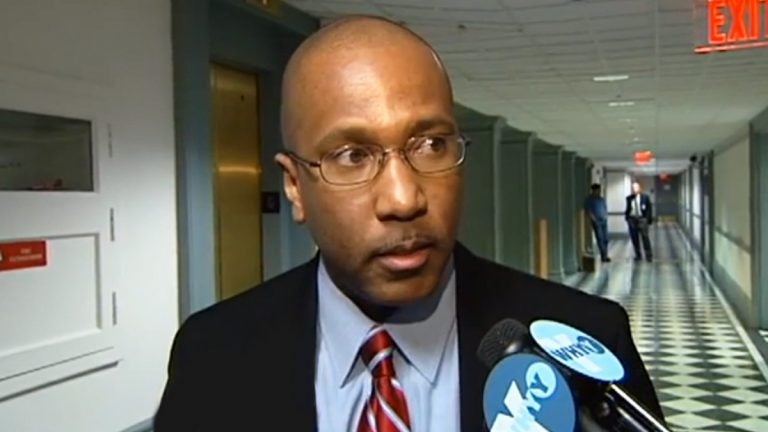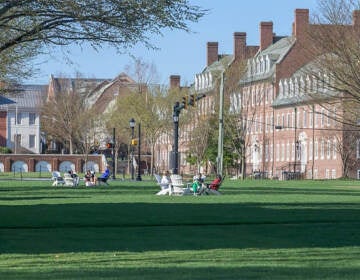Delaware State University President Harry Williams to head Thurgood Marshall Fund; leaves DSU in January

Harry Lee Williams, president of Delaware State University since 2009, will head the Thurgood Marshall College Fund. (File/WHYY)
Harry Lee Williams, president of Delaware State University since 2010, is leaving the Dover campus to lead the Thurgood Marshall College Fund.
Williams, who will stay at Delaware State through January, announced his move to the nation’s largest organization representing the black college community on Monday at the group’s 30th anniversary awards gala in Washington, Delaware State said in a news release Monday night.
The Thurgood Marshall College Fund, founded in 1987 and named after America’s first black Supreme Court justice, has 47 member schools that represent nearly 300,000 students from Historically Black Colleges and Universities (HBCUs) and predominantly black schools. Delaware State University, founded in 1891 is an HBCU.
As president and chief executive for the Marshall fund, Williams will be charged with building new strategic partnerships to secure funds to create scholarships, enhance capacity, expand HBCU research initiatives, and stimulate innovative programming.
Williams also also lead the group’s K-12 public education reform efforts and its pipeline programming for Fortune 500 companies seeking highly qualified employees for increasingly diverse US and international markets.
Delaware State, where Williams began in 2007 as provost and vice president for academic affairs, was “the most defining decade of my professional life,” Williams said in the school’s release.
“Every day I’ve attempted return that same level of energy and commitment to the Hornet Nation, so that DSU takes its rightful place among the most important, diverse, and influential HBCUs in the country. While much remains to do, we have achieved our initial objectives and are now perfectly poised for the future. What makes me most proud is that we did it together.”
As president, Williams focused on long-term strategic growth and grew enrollment by 22 percent while building a a research capacity of nearly $30 million in grants that included a cutting-edge optics center and the school’s first patents.
Delaware State developed agreements with 25 countries, including joint-degree programs in Asia, Europe and Africa, and led a $20 million fundraising campaign. He also launched the Delaware Institute for Science and Technology, chartering the Early College High School, and establishing a campus in downtown Wilmington.
This year, the HBCU digest named him one of the 10 most influential HBCU presidents.
Gov. John Carney praised Williams as a transformative leader during a critical time for Delaware State.
“DSU has long been one of Delaware’s most important and historic institutions, and its contributions to our state, our ability to attract talented young people, and prepare the next generation, have only grown under Dr. Williams’ guidance,” Carney said in a written statement. “We’ll miss his leadership in Delaware.”
Board of Trustees Chair Dr. Wilma Mishoe, whose father Luna Mishoe was the longest-serving president in school history, called Williams “a visionary leader whose acumen and style are matched only by his commitment to our students’ success. … He embodies the very best of us from our initial roots as Delaware College for Colored Students to our evolution as a comprehensive teaching, learning, and research University.”
Williams will replace Johnny C. Taylor Jr., who led the Marshall fund for last seven years and will become chief executive at the Society of Human Resource Management.
Jim Clifton, the Marshall fund’s board chairman, said in the release that Williams “brings a 360-degree perspective to our next phase of growth and development.”
Under Williams, Clifton said, “Delaware State University was an incredible example for us all, and now, Harry’s number one priority will be building scale and capacity across the HBCU community and strengthening these great institutions from their very cores. Without strong, healthy HBCUs, America cannot keep pace in a smaller, more specialized, diverse, and connected world.”
WHYY’s Nichelle Polston is covering Williams’ speech Monday night in Washington. Listen to her reports Tuesday morning on Morning Edition and check back to whyy.org/new to see video of the Monday night event.
WHYY is your source for fact-based, in-depth journalism and information. As a nonprofit organization, we rely on financial support from readers like you. Please give today.




